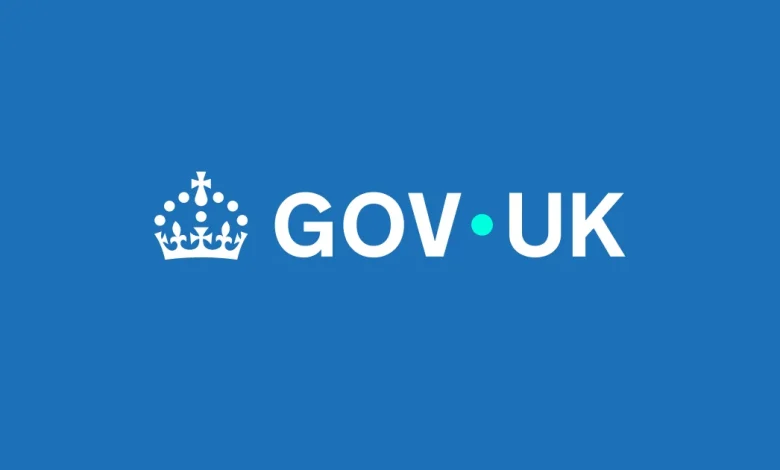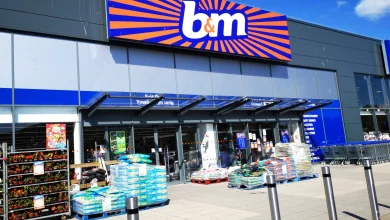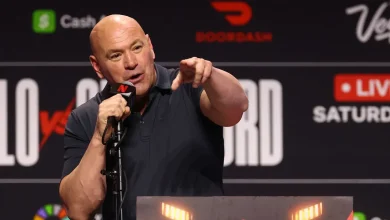Soft drink levy extended to protect children and improve health

- Soft drinks levy will be extended to cover more products, including sugary milk-based drinks.
- Changes could cut 17 million calories a day from the nation’s daily intake, helping to prevent cancer, heart disease, and stroke and take pressure off the NHS
- Companies have until January 2028 to remove sugar or face the new charge which will add £1 billion in health and economic benefits.
Children will have a healthier start to life after the government announces an extension of the soft drinks levy to more high-sugar drinks, making it easier for families to buy less sugary products.
Changes will apply the charge to pre-packaged milk-based and milk-alternative drinks with added sugar like supermarket milkshakes, flavoured milks, sweetened yoghurt drinks, chocolate milk drinks, and ready-to-drink coffees.
Many of these products can contain as much added sugar as fizzy drinks, where much of that sugar is added separately to the milk, but were previously exempt from the levy, which so far has seen the average sugar content of drinks in scope fall almost 50% since it was introduced. Plain, unsweetened milk and milk-alternative drinks are not and will not be included.
Obesity is one of the root causes of diabetes, heart disease and cancer. With the UK now having the third highest rate of adult obesity in Europe, it remains a critical public health challenge, costing the NHS £11.4 billion a year, 3 times the NHS budget for ambulance services.
This and other measures the government is taking to tackle the obesity crisis will prevent hundreds of thousands of people becoming obese, helping to prevent cancer, heart disease, and stroke.
Health and Social Care Secretary Wes Streeting said:
An unhealthy start to life holds kids back from day one, especially those from poor backgrounds like mine. We’re on a mission to raise the healthiest generation of children ever, and that means taking on the biggest drivers of poor health.
The levy has already shown that when industry cuts sugar levels, children’s health improves. So, we’re going further .
A healthier nation will mean less pressure on our NHS, a healthier economy, and a happier society. It’s a simple change that is part of this government’s mission to give every child a healthy start to life.
The threshold is being lowered from 5g to 4.5g of sugar per 100ml. This means more high-sugar drinks will fall under the levy unless manufacturers reduce sugar, with businesses given until 1 January 2028 to reduce sugar in their drinks.
This is a levy on manufacturers and importers, which has led to companies acting by halving sugar content in popular drinks to avoid the tax. The government expects companies to do the same with the extension.
Changes follow a government consultation from April to July 2025. HMRC have today outlined the final policy in a formal response, available here: https://www.gov.uk/government/consultations/strengthening-the-soft-drinks-industry-levy.
High sugar intake puts children at greater risk of dental decay and obesity – and obese adults are at risk of long-term health conditions such as type 2 diabetes, heart disease and some cancers. Tooth decay outpaces other common childhood conditions, including acute tonsillitis, as the leading cause of hospital admissions among 5- to 9-year-olds in England.
Between 2015 and 2024, the levy has cut sugar levels in affected products by almost half.
These interventions have led to substantial reductions in hospital admissions for children requiring caries-related tooth extractions, with decreases of over 28% among 0–4 year olds and more than 5% among 5–9 year olds.
In addition, businesses have consistently experienced increased sales of drinks. According to comprehensive DHSC data, these products recorded a 13.5% rise in volume sales (litres) between 2015 and 2024, demonstrating strong consumer acceptance and the commercial viability of healthier reformulated beverages.
The new plans are expected to reduce daily calorie intake by around 4 million in children and 13 million in adults across England. This could prevent almost 14,000 cases of adult obesity and nearly 1,000 cases of childhood obesity.
It is expected to also deliver almost £1 billion in health and economic benefits, including by saving the NHS £36 million, reduce social care pressures by £30 million, and contributing around £221 million in economic output through improved workforce participation
England’s Chief Medical Officer, Professor Sir Chris Whitty, said:
Creating an environment where children are encouraged to have drinks which contribute to increased levels of obesity can harm their health for the rest of their lives.
The existing Soft Drinks Industry Levy has already substantially reduced the amount of sugar in shop-bought products, helping slow the increase in childhood obesity and bring down hospital admissions for tooth extractions among young children.
Extending the sugar levy is likely to have further benefit for child health.
This change is part of a package of measures the government is using to tackle obesity and prevent heart disease, stroke, and cancer, including:
- The Healthy Food Standard to make the average shopping basket of goods healthier
- Banning junk food adverts before the 9pm watershed.
- Banning the sale of high-caffeine energy drinks to children aged under 16
- Giving local authorities powers to stop fast food shops setting up outside schools
Katharine Jenner, Executive Director at Obesity Health Alliance, said:
Ending the exemption for sugary milkshakes and bringing more sugary soft drinks into the levy is a sensible and long-overdue step to protect children’s health – especially their teeth. The Soft Drinks Industry Levy has already removed billions of teaspoons of sugar from the nation’s diet without harming industry growth, proving that clear, consistent rules are effective.
We now urge the Government to press on with implementing the rest of its NHS 10-year plan for health – helping to rebuild a food environment that supports children’s health rather than undermines it.
Eddie Crouch, Chair at British Dental Association Chair. said:
The success of this policy won’t be about filling the black hole in the public finances; it will be whether industry will reformulate.
Voluntary action here has achieved nothing. But since it rolled out in 2018, the sugar levy has led industry to remove tens of thousands of tonnes of sugar from soft drinks.
Tooth decay is the number one reason for hospital admissions among young children. This is precisely the time for government to go further and faster with tried and tested policies.
Helen Kirrane, Head of Policy and Campaigns at Diabetes UK, said:
With cases of type 2 diabetes continuing to rise at an alarming rate, particularly in younger people, we need bold action to cut unnecessary sugar from food and drink.
The Soft Drinks Industry Levy has already substantially reduced the sugar in soft drinks, lowering the amount of sugar consumed by children. Expanding it to include milk-based and milk-alternative drinks, which can contain large amounts of hidden sugar, is a welcome step forward.
We know that, for many people, it can be overwhelming to navigate such a wide range of products, and it’s not always clear what is good for us. This change will help ensure the healthier choice is the easier choice.





